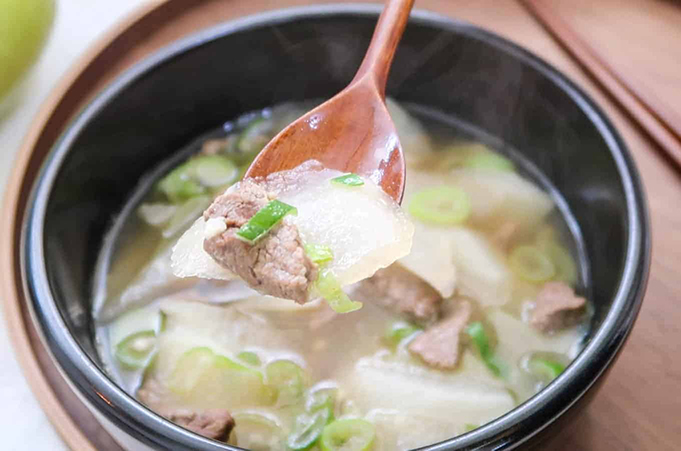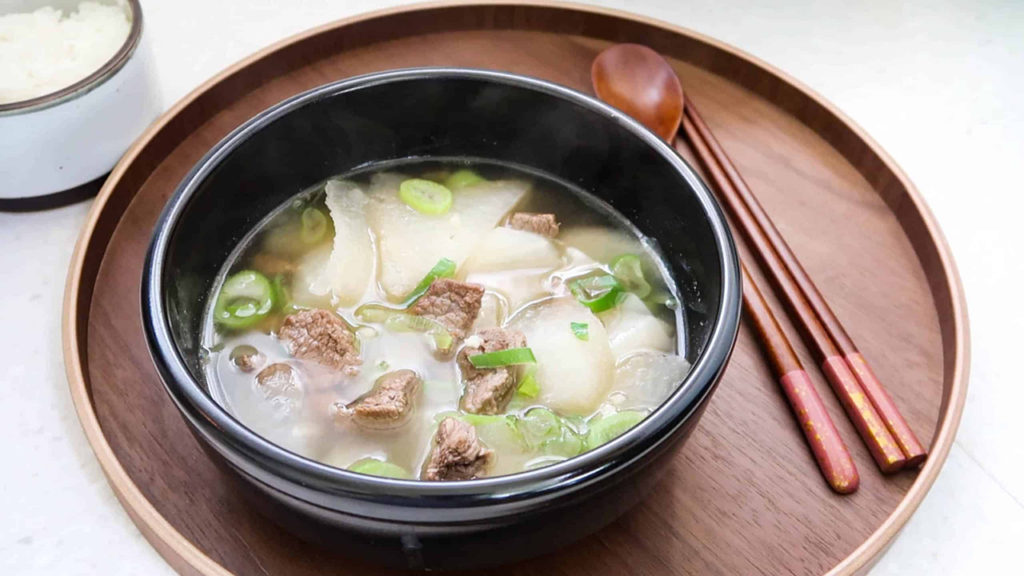Sogogi Muguk
Beef and Radish Stew.
By Joe Wabe.
Korean white radish, or mu (무), is one of the most widely cultivated crops in Korea, and its cultivation dates back to the Three Kingdoms era. Although it grows all year round, it is well known that the fall and winter harvests offer the tastiest and crispiest radishes of all. One of the main characteristics that set Korean mu apart from the rest is that they are larger than their other radish relatives.
The beginning of spring with its chilly winds and carnival of scents blowing up in the air makes us want to enjoy food that resembles this time of the year: cuisine that feels fresh, clean, and is gently colorful and aromatic. This recipe fits perfectly these meteorological conditions, and considering that we can still get a hold of crispy and mild radishes from the winter harvest, this beef stew is an ideal choice.
For centuries, sogogi muguk (소고기 무국) has been a popular Korean staple. Its simplicity and rich flavor make it one of my favorites in spring. Its soothing taste of beef and cool radish, slightly balanced with its sweetness and salty taste, will definitely make you want more than one serving.

Ingredients (Serves 4)
500 gram brisket cut into small pieces
½ small Korean radish
1 tablespoon of soy sauce
1 tablespoon of anchovy stock
1 teaspoon of sesame oil
1 tablespoon of minced garlic
1 stack of green onions
1 teaspoon of sugar
1 teaspoon of cooking wine (mirin)
2 bay leaves
black pepper
Preparation
Put the meat, bay leaves, and cooking wine in a pot with water and let it boil for about ten minutes, removing the scum as it boils. When done, strain and let it sit on the side (remove the bay leaves).
In a separate pot, add six cups of water and the radish (cut in thick slices), and bring it to a boil.
Add the meat, soy sauce, minced garlic, and anchovy stock, and let it all cook for about 30 minutes.
Once this process is done, add the sesame oil, chopped green onion, sugar, and black pepper, and let it cook for an extra ten minutes.
Let it rest for ten minutes before serving. It goes well with white rice.

The Author
Joe Wabe is a Gwangju expat who has been contributing to the GIC and the Gwangju News for more than ten years with his work in photography and writing.





